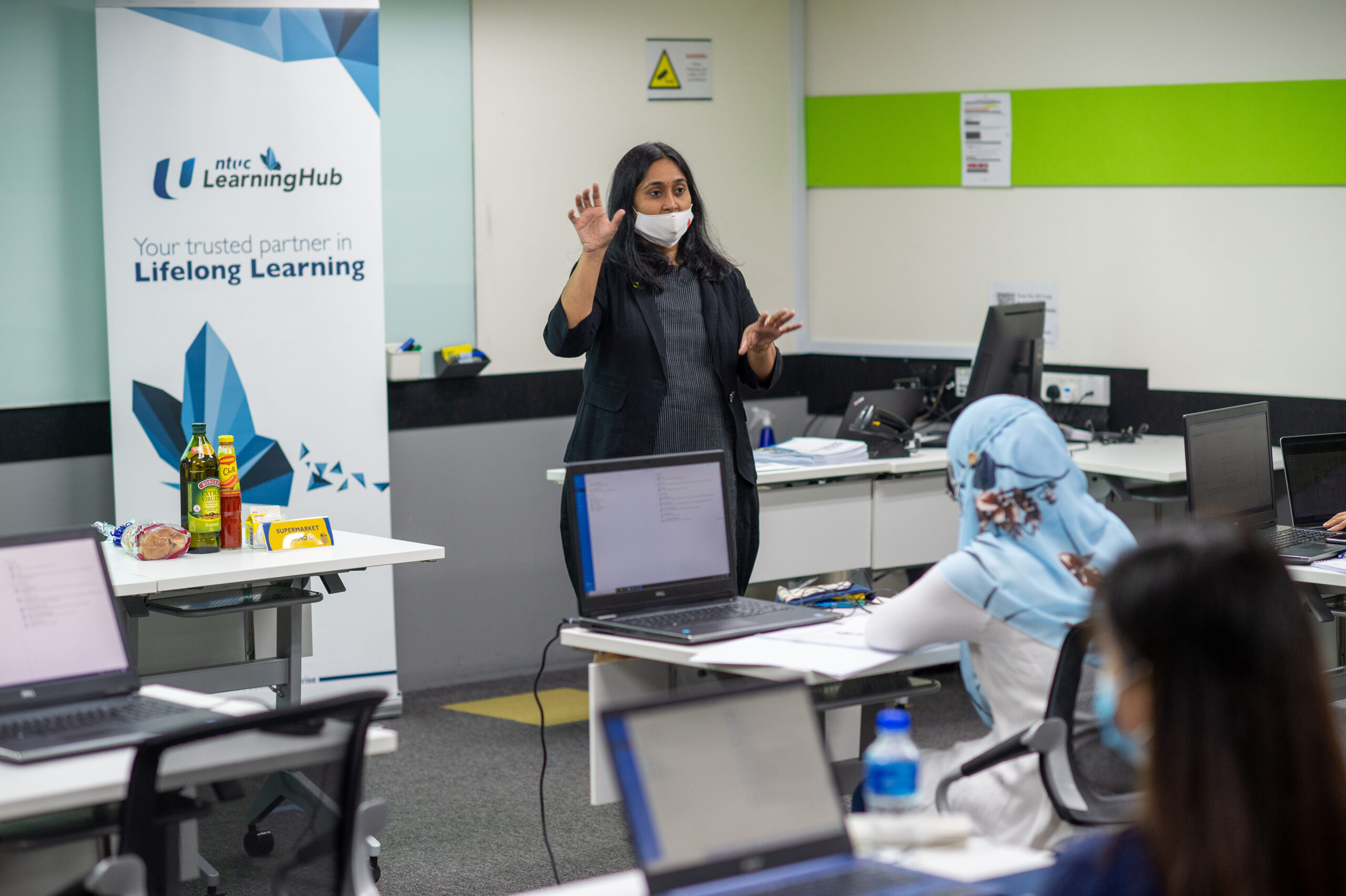NTUC LHUB sets SMEs in Singapore on the road to digital success
- Shawn Liew

As part of the SME Digital Reboot programme, NTUC LHUB and NP will provide training across five tracks, including Digital Communication and Collaboration, Workflow Automation, Process Automation, Data Processes and Visualisation, as well as Digital Marketing.
Among the many disruptive changes the pandemic has brought forth, compelling businesses to accelerate their digital transformation is arguably the most transformative.
Recognising the importance of SMEs in Singapore building their digital competencies to thrive in a new world of work, NTUC LearningHub (NTUC LHUB) has launched the SME Digital Reboot programme.
Launched in collaboration with NTUC U SME, United Overseas Bank (UOB)’s innovation accelerator The FinLab and Ngee Ann Polytechnic (NP), the programme aims to help 500 companies in Singapore deepen their digital capabilities by the end of 2022.
While available to companies of all sizes, the programme will focus on helping SMEs, which employ more than two-thirds of Singapore’s workforce, while contributing an estimated half of Singapore’s GDP.
Ng Chee Meng, Secretary-General Of NTUC, said, “As the road to digitalisation gathers pace, I am confident that with SME Digital Reboot programme’s launch, our SME employers will have a positive mindset and gain confidence in investing in their workers, upgrade their digital skills to remain relevant and keep pace with the times. Simultaneously, we will accelerate our SMEs’ and companies’ transformation by building digital competencies which are vital in driving Singapore’s transformed business landscape.”
Changing mindsets key to achieving success in digital transformation
For the Association of Employment Agencies (AEAS) in Singapore, the road to digital started in 2009, and is a continuous journey filled with challenges.
K Jayaprema, President of AESA, highlighted, “What we are looking to address is definitely the traditional mindsets of SMEs, where employers and employees are very often not on the same page. Employers may want to do something to improve their business, but employees might not be supportive, and vice versa.
“Even when there is an understanding between employers and employees, business owners who want to embark on change may lack awareness. Being informed is crucial – SMEs need to know what is available, and how to use it to best suit their business needs to gain sustained success.”
Under the SME Digital Reboot programme, AEAS members, which are made up of manpower-lean employment agencies, would be offered employment advisory for training, training courses for workers and the right tools to kickstart their digital transformation.
Moving forward, AEAS will continue to emphasise the importance of digital transformation to its members so they can leverage the assistance and support available through programmes such as SME Digital Reboot, Jayaprema revealed.
While the programme is applicable to companies of all sizes, it focuses on shifting the mindsets of SME employers, pushing for the upskilling of SME employees, and helping SMEs create sustainable business tools that will help them adapt to changes.
Jason Marine gears up for a digital future with SME Digital Reboot
Through a pilot programme, 40 companies have benefitted from the ‘reboot’, turning digital disruption to digital assistance in their businesses.
Jason Marine, for instance, is now able to divert their employees’ time to better address customers’ needs and foster relationships with them. Ooi Chee Keong, the company’s Operations Director, explained, “We found that technology can help automate some of the work that can done without too much hassle. Our staff now have more time to perform value-added jobs that we cannot really automate, for example, customer interaction, and we now spend time on what matters, rather than what is necessary.”
As part of the SME Digital Reboot programme, NTUC LHUB and NP will provide training across five tracks, including Digital Communication and Collaboration, Workflow Automation, Process Automation, Data Processes and Visualisation, as well as Digital Marketing.
Describing the five tracks as “basic pillars” SMEs will need to be able to function effectively as they build their organisation towards a new digital future, Ooi also urged employees in Singapore to cultivate a desire to continuously learn.
“The pandemic pushed us to pick up digital tools, which helped us to simplify workflows when we don’t see each other a lot. Going forward however, you will need these digital skills to work in society, and to provide added value for yourself and your company.”
Through its broad network of SMEs and associations, NTUC U SME will continue to engage more companies to begin their digital transformation. With The FinLab’s expertise in supporting ASEAN SMEs with their business transformation journeys, the organisation will also provide companies access to a range of digital resources and tools for a Digital Needs Assessment to prioritise the areas of digitalisation. These resources and tools are designed to help companies understand their business needs and to determine a sustainable digitalisation strategy.
Digital transformation starts from within for Passion Employment
Encouraging other SMEs in Singapore to sign up for the SME Digital Reboot programme, Low Ming Heng, Director, Passion Employment, described how his company found the need to transform because of the pandemic.
“If we continue to operate with traditional methods, we risk being phased out of business,” Low elaborated. “Our staff realised they needed to alter their mindsets, and they started adapting to the changes.”
With Passion Employment accelerating its digital transformation and adopting more virtual platforms, challenges naturally arose, as he identified, “Anything that you post on your website that is in the public domain, creates the risk of data leakage and competitors being able to see what you are doing.”
As one of the 40 companies who benefitted from the pilot programme, Low and his colleagues gained key insights into how to embark on their digital journey in a safer manner, as he concluded, “Nothing is foolproof, but with certain guidelines and security measures, we can adopt in a more effective way.”
Click here for more information on the SME Digital Reboot programme and funding available.






